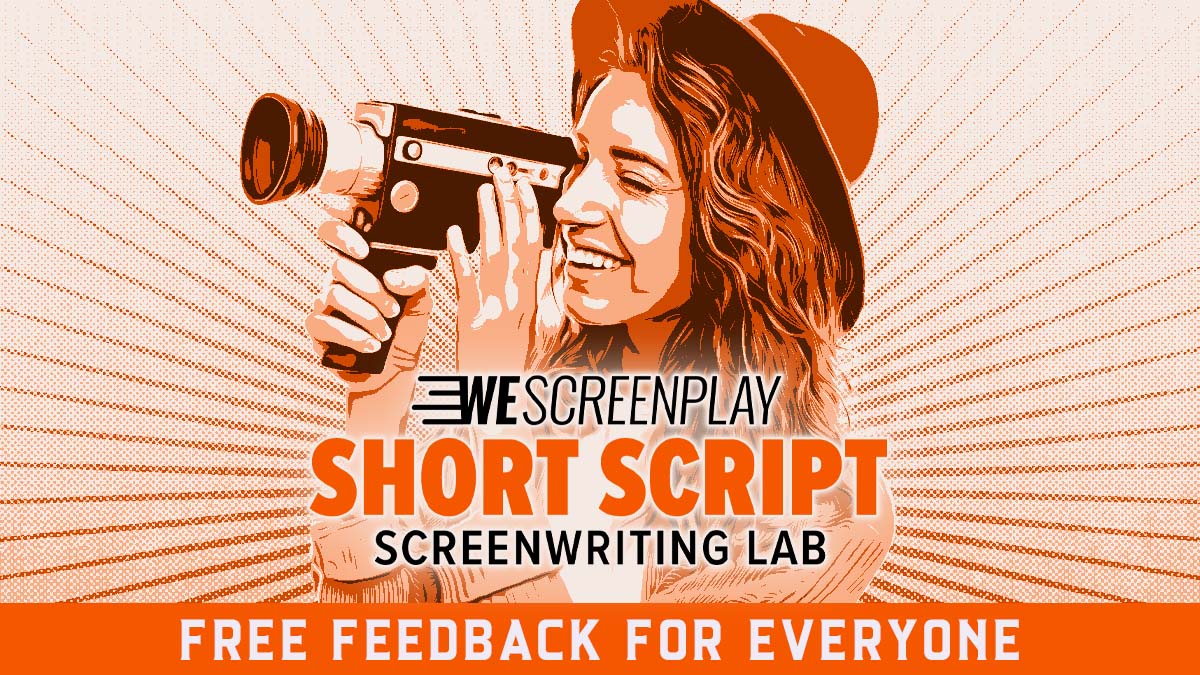 If you want to learn how to leverage a writing competition win into a successful career in television, you’ll want to ask Elise Brown.
If you want to learn how to leverage a writing competition win into a successful career in television, you’ll want to ask Elise Brown.
Elise is the winner of WeScreenplay’s 2020 Spring Diverse Voices Screenwriting Lab and now works as a staff writer on series like Hulu’s Candy and Showtime’s Yellowjackets. She typically writes stories that foreground black women and explore hierarchies of power and how they’re reinforced by the realities of race, gender and class.
We got the chance to chat with Elise about how she was able to take advantage of her competition win to launch her TV writing career. Check out out interview below!
WeScreenplay: What was your career situation before entering Diverse Voices?
Elise Brown: Before Diverse Voices, I was script coordinating in TV writers’ rooms and I had managers who were setting me up on generals with executives around town. But, getting staffed can be really difficult. There are lots of incredibly talented writers in this town, so it’s highly competitive and can often boil down to who you know, who’s familiar with your work, and any special connection you have to the project (i.e. lived experience that mirrors some aspect of the plot or one of the characters, a special talent in a certain genre, etc).
So, I was also looking for anything else that could push me over the top and help me to get staffed on a drama TV series. This is what led me to apply to Diverse Voices — I had heard that fellowships and script competitions could help to set you apart, introduce you to new people and ultimately move your career forward.

Elise Brown
WS: How were you able to leverage your Diverse Voices competition win?
EB: One of the judges for the competition liked my pilot and asked to meet with me after my win. It turned out that this judge was an executive at UCP, the company behind a show I had script coordinated for, and where a writing mentor of mine had an overall deal. These things all came together pretty wonderfully— when my mentor was producing a new show with UCP, that meeting I had with them after my win helped me to ultimately get staffed on it.
My Diverse Voices win also helped me to become a Coverfly Endorsed Writer. That program connected me with my first agent, who is now my manager.
Read More: How to Get a Job Writing for TV
WS: As someone who has won a screenwriting competition, how can emerging writers maximize their competition victories?
EB: One of the most compelling things that competition wins can give you is connections. The other fellowship winners, the mentors they set you up with, meetings with executives that the competitions facilitate— any of these connections can lead to some wonderful collaborations and potential opportunities. So, just getting to know anyone the competition introduces you to and keeping in touch with them can be a great way to maximize your win and add some great momentum to your career.

Competitions can also be a good way to find representation— being able to say that you won certain competitions can help you gain attention with agents and managers and help land you one. And, one of the benefits of a fellowship like Diverse Voices is that they often introduce you to potential reps— a good number of my fellow winners found representation during their time with Diverse Voices. So, just being open to whoever you meet and being clear on what your goals are can help you to really make the most of your win.
WS: All journeys toward success are different, but can you tell us about yours after winning Diverse Voices? What steps led you to get into the writers room of two great shows?
EB: I’ve been lucky to be in rooms where I’ve had great experiences: I’ve learned from some really fabulous writers and everyone has been incredibly kind. So, one takeaway has been that you absolutely do not have to suffer for your art. You can still get things done and be happy with the end result while working reasonable hours and treating everyone with respect and consideration.

‘Candy’
That extends to personal life as well; I’ve found that my work suffers when I’m not taking good care of myself. So making that time to be a full, happy person— spending time with friends and family, exercising, doing things, and going to places that you love— is important for a well-rounded creative life and these things don’t need to be sacrificed in service of crafting a thriving career.
Another takeaway is that there are a million different ways to tell the same story. If you have ten writers, you’ll likely have ten different ideas of how something should be made. In the rooms I’ve been in, there have been moments where we go back and forth on how to handle a single aspect of the story and each writer will have a different way of looking at it. I’ve found this quite freeing because it’s a good reminder that there is no wrong way to tell a story and that the possibilities are endless. And it’s also a great lesson in knowing what your perspective is, why, and how to communicate it while respecting (and learning from) the perspectives of others.

‘Yellowjackets’
WS: Was there ever a moment where you felt like giving up? How did you keep going?
EB: Oh, definitely. I had no doubt that writing for television and film is exactly where I wanted to be… but it can be very hard to get that first paid writing job and there’s no guarantee that it’ll ever actually happen.
There were moments where I wondered if I should have pursued a more straightforward career path with more stability and a better-starting salary. There were even a few times where I opened up LinkedIn and applied to jobs in other industries because I was burnt out and afraid that pursuing a writing career was a fool’s errand that would waste my youth and leave me with nothing to show for it (I admit, a tad dramatic, but still). But, in those moments, the biggest question I’d ask myself is this— is there any other job in the world that would make me as happy as writing for television and film? And the answer was always no.

‘Candy’
And I figured that as long as that answer continued to be no, I owed it to myself to stick it out and do everything I could to make my dream a reality. That was usually enough to keep me going.
Also, having family and friends I could call in those low moments was very important. They were always really helpful in giving me some perspective and helping me to process.
WS: Any advice for screenwriters?
EB: Know your voice and stay true to it. Your superpower is your unique point of view, and your writing is not likely to stand out or make an impact unless you fully own who you are as a writer and what you uniquely have to say (and why!).
And take care of yourself! This is an exciting industry, but also one with a lot of uncertainty. Remember to pace yourself, to take breaks, to find ways to feed your soul, and find community.
Read More: How to Survive TV According to ‘insecure’ Executive Producer Amy Aniobi

















